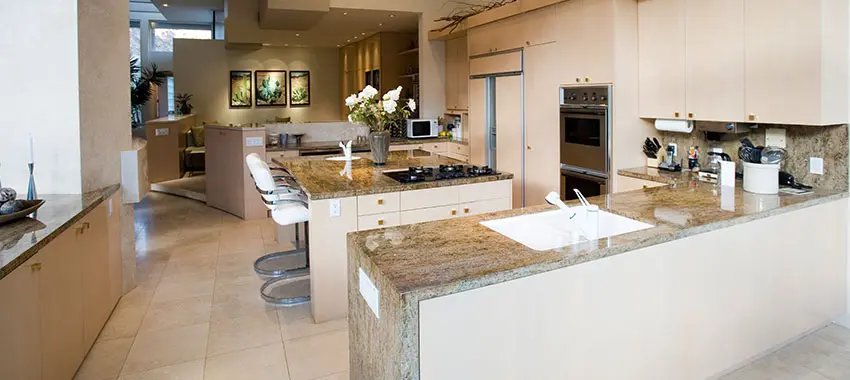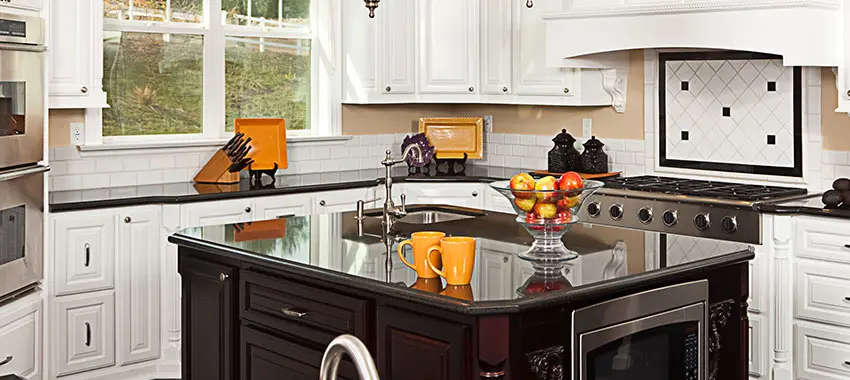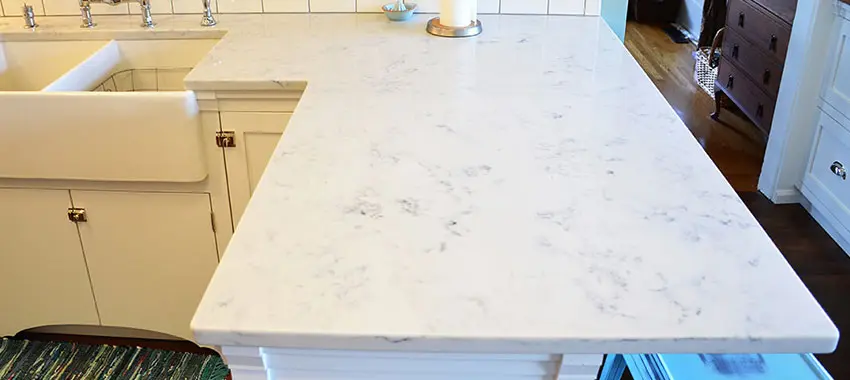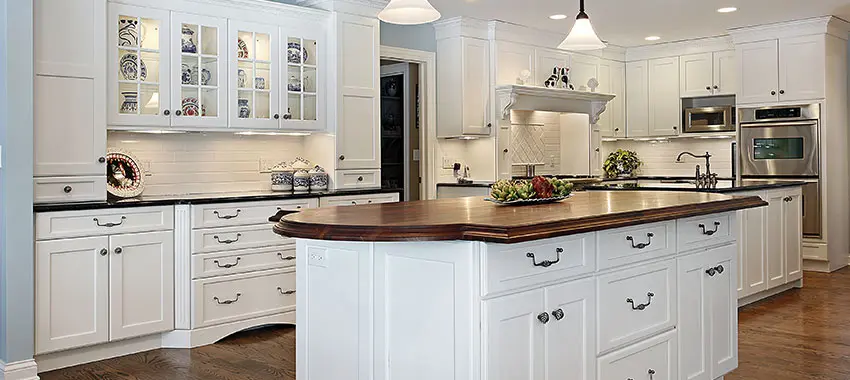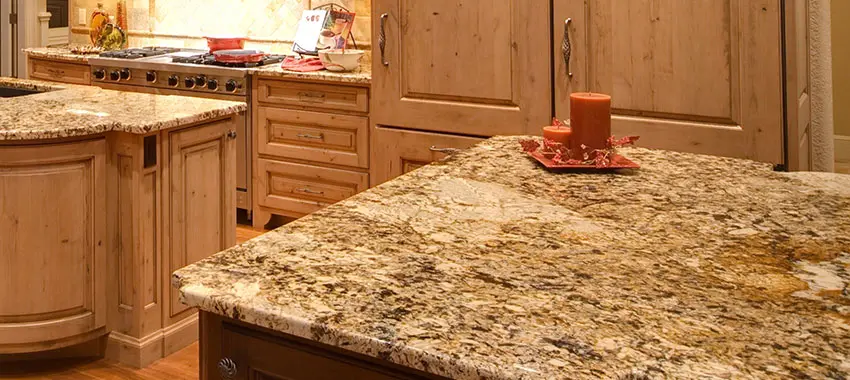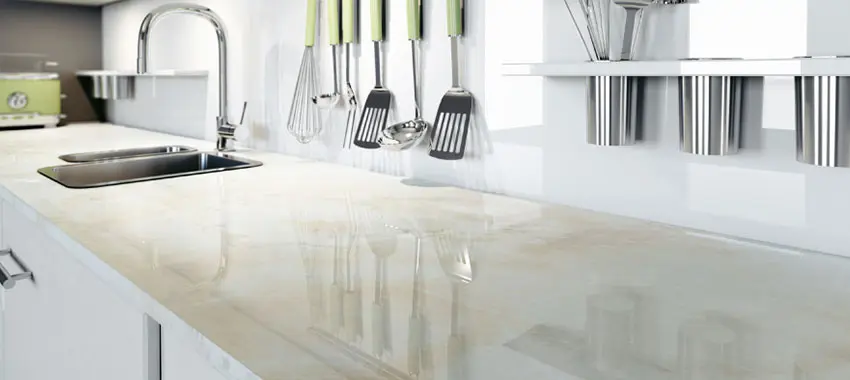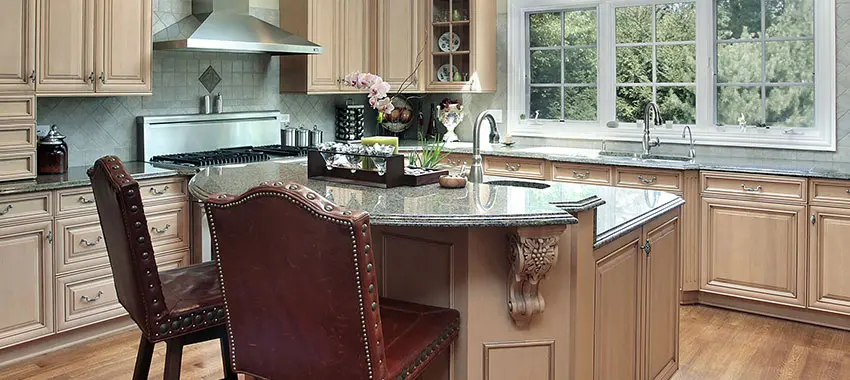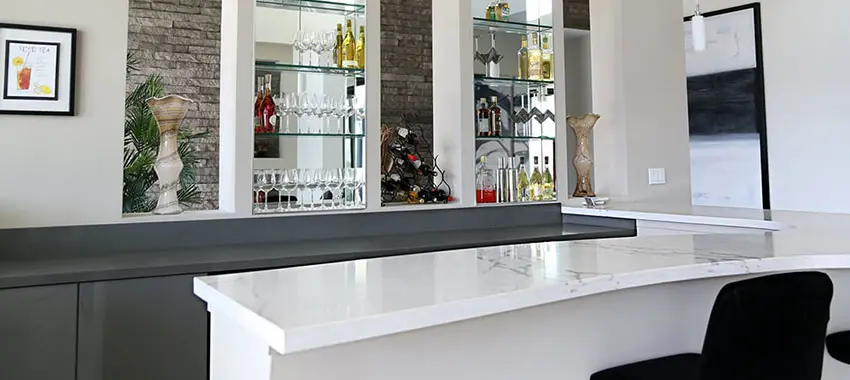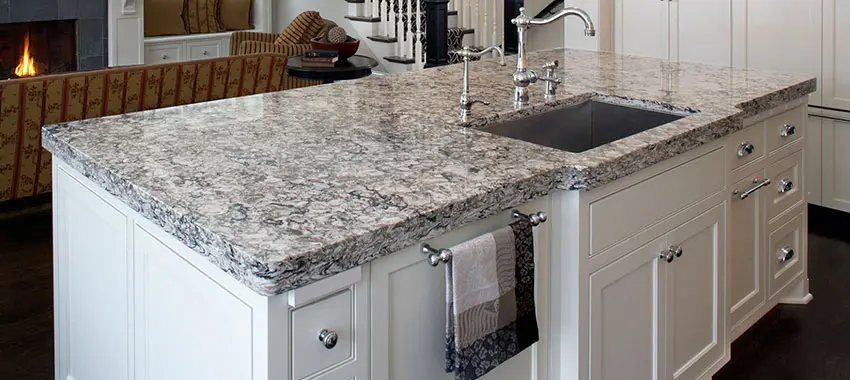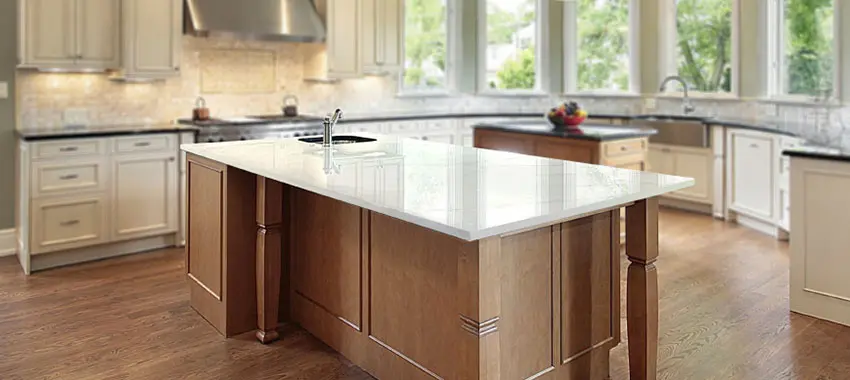Jun
A Comparison Between Granite And Solid Surface Countertops
- 2025
- FlintStoneTops
When it comes to buying kitchen countertops, there are many materials you can choose from. From natural materials to man-made wonders, the list is a mile long. Well, if you want to know the difference between solid surface and granite countertops, then you’re at the right place.
Granite Vs. Solid Surface Countertop
The Material
Knowing about the materials and what they’re made out of is super important.
Granite Countertops
Granite is a natural stone and it is basically an igneous rock that is very hard and very beautiful. Granite is made out of molten rocks, mica, and other sediments within the Earth’s surface, and the stone is created under the influence of high temperatures and pressures. Then, mica is also introduced to give the stone a very beautiful and stark appearance that is characteristic of granite. It is quarried from the ground, cut into slabs of different sizes, and then sent to retailers all over the world.
Solid Surface Countertops
Solid surface, also called Corian, is a man-made countertop material. It is made out of resin and materials that include either aluminum or bauxite, pulverized stones like quartz, granite, and sandstone, and the two are mixed to form a very hard and cohesive material that looks like stone but is just scraps of material bound with resin.
Solid surface is a beautiful material to get for your kitchen if you want something similar to quartz or marble because the appearance is striking and the price tag won’t give you a mini heart attack.
Durability
The next thing to go over is the durability of the materials. Now, even though you don’t have to get a material with Herculean strength, that also doesn’t mean that you should settle for a material that cracks even with the slightest force.
Granite Countertops
Granite is a very durable material. It is considered to be one of the best materials out there when it comes to strength and durability. It is a natural stone that is made under high pressure, so you can do just about anything on it and it won’t budge. The edges are usually the most fragile part of any countertop material, but with granite, even the edges are super strong and they won’t chip away.
Solid Surface Countertops
Solid surface is a decently durable material, but it is nowhere near as strong as natural stones or even other man-made materials such as quartz. Since it is mostly resin, the material is very soft and it can’t do much when it comes to heat. So, you know that you won’t be able to do a lot with it in the kitchen, because it can deform and that is not what you want.
Cost
The next thing to go over is the cost of the countertop materials. You want to get something that is decently reasonable. You don’t want to be either a cheapskate or over-the-top when it comes to splurging on a countertop material.
Granite is considered to be more expensive than solid surface countertops. It is not something that has to do with how luxurious the material is, but since granite is a natural stone and it is quite popular as compared to solid surface, the price also speaks for itself.
Solid Surface countertops are cheaper than granite, however, they are also less durable than granite. So, this is why you need to make a clear decision about which material you need.
Maintenance
Next up is the maintenance of the material. When it comes to materials, maintenance is something that a lot of people are concerned with because they obviously want a material that is easy to look after, but they also don’t want something that can’t be repaired by simple fixes.
Granite Countertops
Granite, because it is a natural stone, needs a lot of maintenance. It is not something you can do just by cleaning the countertops and making sure that there aren’t any stains. You have to ensure that it is sealed at all times, it doesn’t fade away, and that it doesn’t get any permanent stains, and for that the maintenance costs are also extremely high.
Solid Surface Countertops
Solid surface is easy to maintain. It is something that can do well with just regular cleaning, but you need to keep in mind that it does get heat blisters if you put too hot things on the countertops. Moreover, it is more at risk of chipping and scratches as it’s a softer material compared to granite and quartz.
This is very common to occur in solid surface countertops and it is something that you have to keep in mind because heat blisters will completely ruin the countertops and you’ll need to replace them, if anything.
Installation
Now comes the part where you actually get these babies into your kitchen for use. Installation is really important to consider when you’re thinking about getting a material for your kitchen countertops.
Granite Countertops
As far as granite goes, it is a material that is quite heavy, so you will need to rely on a professional when it comes to installation. If you’re choosing granite slabs, then it’s better if you opt for a professional, whereas if you’re going for tiles, then DIY is a route that you can consider too. However, you need to know how to do it otherwise you can botch the job and things will take a turn for the worse.
Solid Surface Countertops
When it comes to solid surface countertops, they are not the best when it comes to DIYing. Be it the material itself, or something about the weight or installing it in the kitchen, it is better that you hire a professional for solid surface countertop installation because this is something that will make or break the results.
You don’t want to have crooked countertops all because you want to save some money in the long run. This is why you need to think things through.
Performance In The Kitchen
So, which one is the best material to use in the kitchen? This is the big question and the answer depends on a lot of factors and circumstances.
Granite Countertops
When it comes to granite, it is generally great for the kitchen as long as you waterproof it. Since you’ll be dealing with moisture and juicy foods in the kitchen all the time, it is better that you take this step.
On the flip side, granite does amazingly well in heat, so that is a huge plus. You don’t need to rummage for a trivet when your steak or roast is sizzling away.
Solid Surface Countertops
Solid surface countertops are amazing to work in moisture-rich environments, because they are virtually non-porous. They don’t let water into their surface, so there is little to no chance of them getting spoiled in the long run.
However, they’re not as great when it comes to contact with hot things, because it is soft and resin is not naturally an insulator of heat, which is why it can be deformed by high temperature. So, this is a very confusing limbo of the two materials to navigate and decide.
Conclusion
Granite and solid surface countertops both have their own sets of positives and negatives, but the decision is ultimately up to you in the end and this guide will help you make the right choice. Get in touch with granite companies Potomac for countertop selection and installation.


